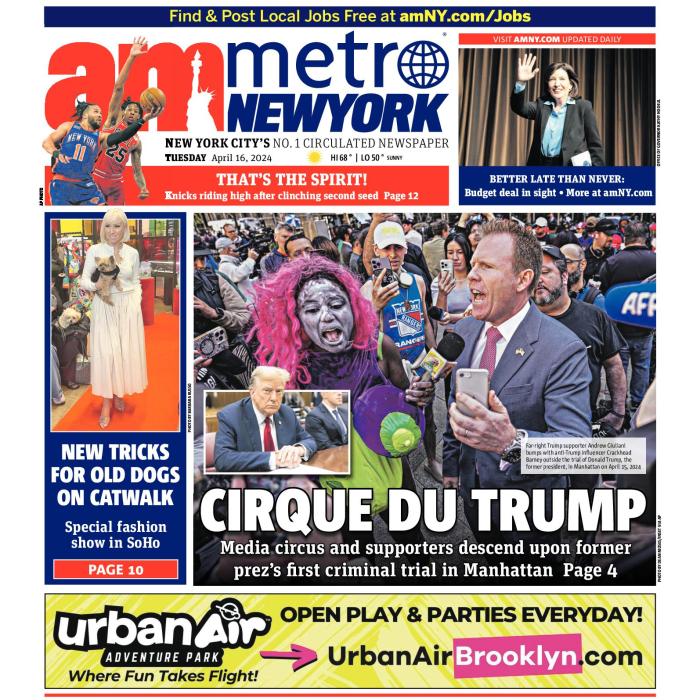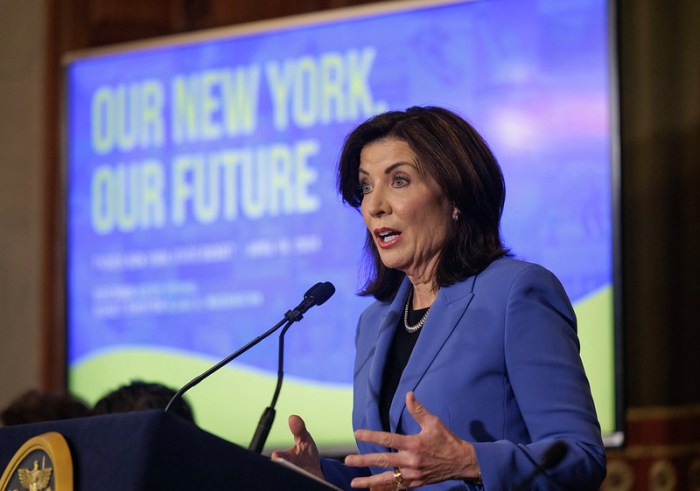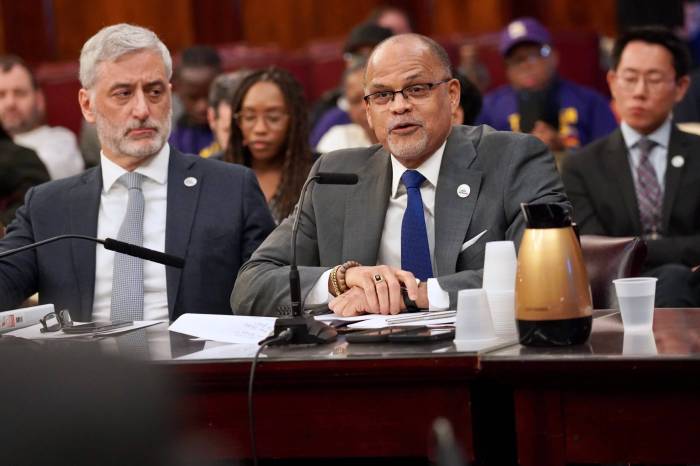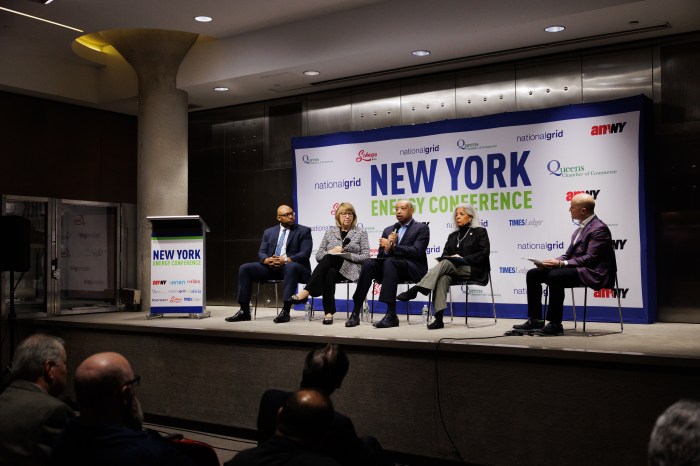
The NYPD announced Tuesday plans to add 35 new detectives to its Special Victims Division. The additional personnel comes in light of an uptick in rapes, which department officials have attributed to increased reporting, and follows last year’s scathing DOI report that accused the NYPD of understaffing the division.
Sixteen detectives will be added to investigate sexual crimes involving minors, 15 will be added to investigate adult crimes, and four will be specifically assigned to sexual assaults that happen in the transit system, Chief of Detectives Dermot Shea said.
The additional personnel follows a DOI report released last year that showed the NYPD employed 67 detectives in its adult sex crime units despite its 2017 caseload of more than 5,600 cases. It also found the NYPD acknowledged the increasing workloads in the units in 2010 and again in 2011, but that the department didn’t increase the number of qualified investigators. Weeks later, the NYPD added an analyst to the Special Victims Division in an attempt to become more technologically advanced. Then in November, the NYPD added more detectives to the division and tapped Deputy Chief Judith Harrison to lead the division as the new commanding officer.
"One rape occurring in New York City is too much, but . . . we need the rapes to be reported because we think it is occurring not just here in New York City but nationally. [It] remains one of the most underreported crimes," Shea said.
With this latest staffing increase, Shea said the Special Victims Division will now have 129 detectives to investigate adult sex crimes.
In January there were 150 reported rapes, compared to 118 in January 2018 and 108 in January 2017. Of the rapes reported this January, 69 were reported to have occurred in a prior year.
Police Commissioner James O’Neill noted the increase in reported rapes and said it was important "to make sure that we have the number of properly trained personnel to address that increase and, quite frankly, be able to bring justice to survivors of sexual assault which might not necessarily be an arrest, but that’s an individual experience for each survivor."
Shea said the new investigators will undergo a criminal investigators course and then receive additional training.
Chief of Crime Control Strategies Lori Pollock said the Special Victims Division will also start participating in closed CompStat meetings this week solely dedicated to that division "to bring special victims up to speed with the rest of the department’s data analytics."
"The confidential nature of investigations often times have impeded our ability to do more real-time analysis and we are fixing that," she said. "I will continue the message to all survivors: Please come forward and give us a chance to investigate these crimes no matter when they occurred."
The NYPD also saw an increase in hate crimes in the beginning of this year, recording 42 instances of hate crimes through Feb. 3 compared to only 19 for the same time period last year, according to Shea. Of those recorded this year, 28 were anti-Semitic in nature, he said.
"What we’re seeing is what we’ve seen before, a dramatic increase in these property crime-related hate crimes, particularly swastikas," Shea said, adding that there are a few people who are "really driving" the crimes.
When asked if the rise in hate crimes indicated a need to teach more tolerance in the city, De Blasio said it "unquestionably" did.
"We’re dealing with a negative situation obviously nationally, there’s no question that we’re dealing with an atmosphere of hate that has been generated largely from Washington D.C. and that’s a headwind we’re fighting against," he said. "I’ve always believed the best way to inhibit hate crimes is to show consequences . . . this is another version of ‘if you see something, say something.’"
















